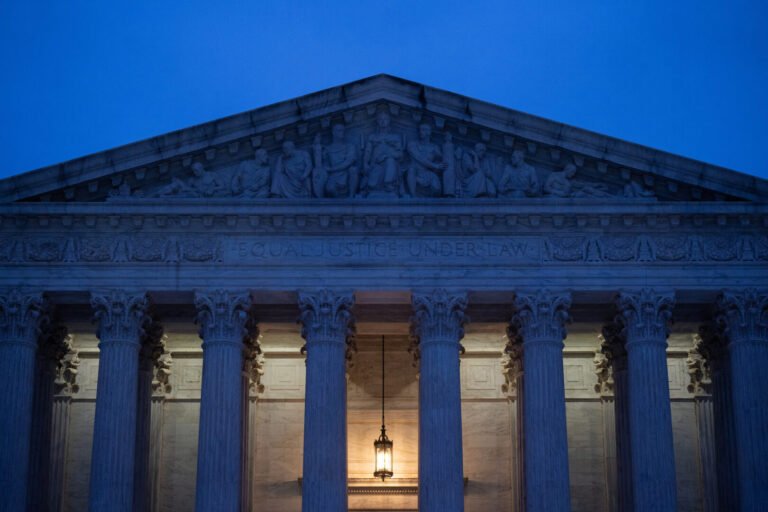The Supreme Court allowed the Trump administration to effectively decline to pay about $4 billion in congressionally appropriated foreign aid funds Friday, in a ruling just days before the end of the fiscal year.
Friday’s order paused part of a lower court order requiring the Trump administration pay congressionally appropriated funds before they expired on Sept. 30.
The Trump administration had asked the justices to lift that lower court order when it came to about $4 billion, which was part of a $4.9 billion rescissions request that the Trump administration sent to Congress last month.
The unsigned order, which drew a dissent from the three justices on the liberal wing of the court, did not explain the conservative majority’s decision, only stating that the Trump administration would likely prevail in the case.
The order stated that the 1974 law at the center of both the case and the administration’s financial move, the Impoundment Control Act, likely blocked the lawsuit brought by the potential recipients of the foreign aid funds, which have been frozen since February.
“And, on the record before the Court, the asserted harms to the Executive’s conduct of foreign affairs appear to outweigh the potential harm faced by respondents,” the order said.
Office of Management and Budget Director Russ Vought called the ruling a “major victory” in a social media post.
The administration argued the law gave it the ability to effectively cancel the funds without congressional approval and the lower court ruling interfered with its negotiations with foreign governments.
The law has provisions restricting the administration’s ability to freeze funds, including a 45-day process where the president can freeze funds temporarily while it sends a request to Congress to vote on rescinding those funds.
The move is called a “pocket rescission,” a legally untested budgetary tool intended to sidestep a law requiring congressional approval prior to canceling federal funding.
Justice Elena Kagan dissented from Friday’s decision, joined by Justices Sonia Sotomayor and Ketanji Brown Jackson, arguing the court’s conservative majority effectively altered the balance of power between Congress and the president over the power of the purse and “conflicts with the separation of powers.”
Kagan also criticized the majority for hedging its decision by stating that it was not a final determination of the merits, because Friday’s ruling allowed the Trump administration to effectively nullify funding approved by Congress.
“The effect is to prevent the funds from reaching their intended recipients — not just now but (because of their impending expiration) for all time,” Kagan wrote.
Kagan also criticized the majority for seemingly buying into a Trump administration argument that only the comptroller general can sue under the Impoundment Control Act.
The case has been brewing since February, when the Trump administration first sought to cancel funds for U.S. Agency for International Development and other foreign aid programs.
After a court challenge, Judge Amir Ali of the U.S. District Court for the District of Columbia ordered the Trump administration to pay the funds, finding the freeze violated the ICA.
A three-judge panel of the U.S. Court of Appeals for the District of Columbia Circuit overturned Ali’s decision and sent it back to his court in August. Ali then reiterated Trump’s obligation to spend the funds, this time under a different federal law.
Before Ali issued his second ruling, the administration sent its $4.9 billion rescissions request to Congress.
The 45-day deadline for the current request goes past the Sept. 30 end of the fiscal year, and the administration has argued that if Congress does not act then the funds will effectively be canceled. The request is currently pending before the House and Senate appropriations panels.
The case at the lower court covers more than $10 billion, and more than $6 billion of which the administration has said it still intends to spend by the Sept. 30 deadline.
The remaining $900 million in the rescissions request is outside of the court case, and covers U.S. payments to the United Nations and other international organizations.
The case is Department of State, et al. v. AIDS Vaccine Advocacy Coalition, et al.

